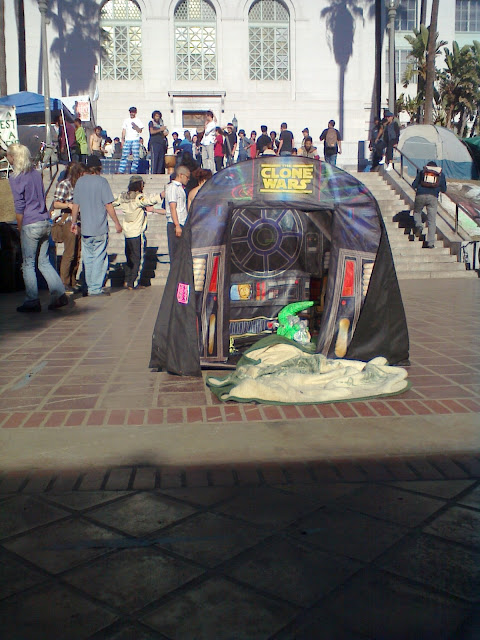This morning I was giving my class the etymology of 'encyclopedia,' acknowledging that the root,
ped, from
pedalis, could mean ‘foot,’ giving us a circle of feet, or from
paido, the word for ‘child,’ meaning a ring of children, but this
ped comes from
paedeia, the Greek idea of education, knowledge, virtue. So, the encyclopedia is the circle or wheel of learning, knowledge contained within a circle, text on scrolls, rolled up. Digressing, I expressed my approval of the early Greeks’ practice of waiting for a child’s milk teeth to fall out before starting formal education. In contrast, we --in America-- send our kids off to school as soon as we can. Interesting research suggests that the human brain is not neurologically prepared for the complexities of decoding symbols until about seven years of age. Some have concluded that hastening this process causes stunting in other areas of development. (Joseph Chilton Pearce has long been an advocate for treating infants and children more sensibly. Jean Liedloff, in
The Continuum Concept, offers a perspective that is truly radical.)
Anyone who has observed children (or can themselves remember) knows that a child can become completely absorbed in learning something, and how quickly it is mastered. Our interest, aroused by something in our environment, draws us toward it. Our curiosity brings us back to the thing, the puzzle, the mystery of the thing, until we crack its secret. But if we’re bored, why bother with the thing? If it isn’t stimulating, we won’t respond. Most learning environments for very young children aren’t very sensible, and tend to upset their development. Most kids, in most schools, are mostly bored most of the time.
This is not news.
It has long been my opinion that if you wanted to cripple the imagination, stifle creativity and undermine self-esteem, you couldn’t do better than the way America educates its children. (Paul Goodman’s
Growing Up Absurd charts the terrain of the 50s and 60s. "Communique from an Absent Future", a document attributed to the Santa Cruz collective, “Research and Destroy,” extends the critique up to 2009 most powerfully.) There are viable models outside the educational mainstream; some are ancient systems; some are recent constructions. My interest is drawn toward learner-friendly environments, what they are and how we can shape more of them. I’m also interested in the process of generating ‘teachable moments,’ and breaking down the false status barriers between students and teachers.
When I walk around OccupyLA, or watch the livestream, I don’t yet get a sense of cohesion and unity. It must be there or the occupation would not have continued through two months, despite police action and evictions. The General Assemblies and committees are likely the core instruments of education, organization and action. I hope I can spend some time attending a GA soon. My legs are getting stronger and I can handle being on my feet longer.
I’d like to test my model against what is actually happening at the encampment. I’m curious how deep the occupiers’ understanding is for what they are doing. Certainly the people in the parks have been severely tested in numerous cities by police raids. There is a pattern in these assaults that is worth noting. The corporate media first report an incident in or near the encampment: an assault, a suicide, a man with a weapon. A follow up decries the disorder and garbage, the health hazard. The mayor warns of safety and health concerns for the occupiers. The camp receives notice to leave with a deadline for forcible removal. The police arrive punctually and proceed with their assignment. Except in Portland, I think it was, and a few other places, the people out-numbered the police and they backed down.
The raids will not stop the OccupyWallStreet movement. Sympathy will grow and resistance will spread. The Occupation, those raided and those as yet still encamped, should recognize that their weakness was exploited. It is clear that the alternative services, first aid, security, childcare, library, media, etc, need to be more visible. The people in the Occupation can demonstrate for all to see that taking care of each other is a responsibility we take seriously. It is our common wealth. Isn’t this what democracy looks like?
* *
I imagine Consciousness and Environment to be plastic interactive energy fields. We explore and shape our surroundings, as the world around us beckons and defines us. It’s a kind of Taoist approach to experience. Learning to live in harmony with our environment (including other humans) is one of the important opportunities/tasks we have as humans. Each Occupy camp is a full-time, round the clock, learning environment, a kind of learning lab, a situation outside most peoples’ experience.
Let’s see what we can figure out?
15 November 2011
Eagle Rock




































